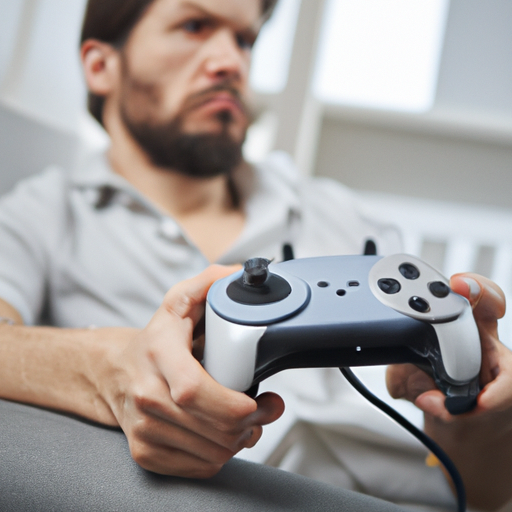
Title: A Comprehensive Guide to Mainstream Models of Controllers

1. Gaming Controllers (200 words) Gaming controllers have revolutionized the gaming industry, providing users with immersive experiences and precise control. The most popular mainstream models include the Xbox Wireless Controller, PlayStation DualShock, and Nintendo Switch Pro Controller. These controllers offer ergonomic designs, wireless connectivity, motion sensors, and haptic feedback, enhancing gameplay and user comfort. Additionally, advancements such as adaptive triggers and touch-sensitive panels have further enhanced the gaming experience.
2. Industrial Controllers (250 words) Industrial controllers are vital for automation and control systems in manufacturing, process control, and robotics. The Programmable Logic Controller (PLC) and Distributed Control System (DCS) are two prominent models in this domain. PLCs are widely used for discrete control applications, while DCSs are designed for continuous control processes. These controllers offer robustness, reliability, and scalability, enabling efficient control of complex industrial processes. With advancements in connectivity and cloud integration, industrial controllers now support remote monitoring, predictive maintenance, and data analytics.
3. Home Automation Controllers (250 words) Home automation controllers have gained popularity due to the increasing demand for smart homes. Models such as Amazon Echo, Google Nest Hub, and Apple HomePod serve as central hubs, connecting various smart devices and enabling voice control. These controllers integrate with smart thermostats, lighting systems, security cameras, and more, providing users with seamless control and automation. With the rise of artificial intelligence and machine learning, home automation controllers can learn user preferences and adapt to their needs.
4. Drone Controllers (200 words) Drone controllers are essential for remotely piloting unmanned aerial vehicles (UAVs). Models like the DJI Phantom and Mavic series have become mainstream choices for recreational and professional drone pilots. These controllers offer intuitive joysticks, built-in displays, and real-time video transmission, allowing users to navigate drones with precision. Advanced features like obstacle avoidance, follow-me mode, and autonomous flight planning have made drone controllers more user-friendly and accessible.
5. Medical Device Controllers (200 words) Medical device controllers are critical for operating complex medical equipment and ensuring patient safety. Models like the GE Healthcare CARESCAPE and Philips IntelliVue provide healthcare professionals with intuitive interfaces, real-time monitoring, and alarm systems. These controllers enable precise control over medical devices such as ventilators, anesthesia machines, and patient monitors, enhancing patient care and reducing human error.
Conclusion (100 words) Controllers have become indispensable tools across various industries, enabling users to interact with electronic devices and systems effectively. From gaming to industrial automation, home automation to medical devices, the mainstream models of controllers discussed in this article showcase the diverse applications and advancements in this technology. As technology continues to evolve, controllers will play an increasingly vital role in shaping our interactions with electronic devices, making our lives more convenient and efficient.